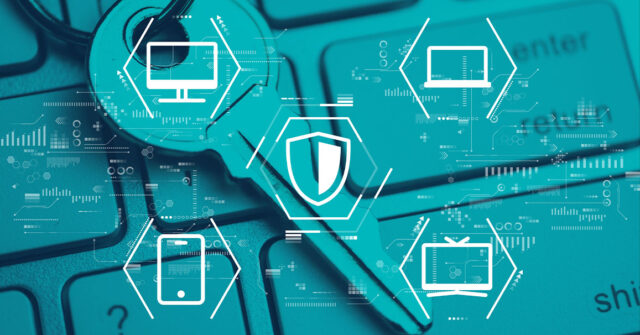
With over 4,000 different versions, it’s undoubtedly clear that cryptocurrencies have gained colossal popularity over the years. Like almost everything profitable, an attraction of criminal interest increases, and in this instance, cyber crimes. For digital asset protection, blockchain is the current answer to warding off potentially disastrous criminal intent.
Every day millions, and sometimes billions, of dollars, are being moved on the blockchain and hackers have had little to no luck penetrating this decentralized ledger. This could be because it’s protected by VPNs and an encrypted level of security that is also used in some banks and the military. Data is stored in hash functions and stored in blocks. The data is complicated to crack as each block has its own fingerprint.
However, most people aren’t aware of these cogs that go into ensuring their digital funds are protected. This same level of remiss is sadly applied to everyday virtual interactions that end up compromising the safety of personal data and privacy. The diligent cryptocurrency operations that rigorously work to protect digital asset owners, do offer some insight into the importance of using the right tools to safeguard your virtual identity.
Deleting browser information with crypto

In 2016, Equifax Inc made a profit of $488.8 Million from a data breach. Datawallet is an app hoping to change the current status quo. Users will be able to sell their personal data like Amazon purchases and social media activity using public and private keys. Blockchain, Web3, crypto, and the metaverse all have the same principle in mind which gives users ownership of their data and content.
The user can sell their compiled data to whomever they wish without the use of a middleman. Crypto browsers like Brave, Opera Web3, and Osiris prevent cybercriminals from illicitly using your computer’s processor to mine crypto using your internet browser, a form of Cryptojacking. These browsers have added security features, but they are not able to prevent brokers from taking your data.
1. Decentralized cloud storage rules
Cloud storage on the blockchain, for personal information, is safer because sensitive data is not stored in one place as it is decentralized. Cybercriminals are no longer able to hack one server to steal all the data. Regarding the Internet of Things, blockchain tech is used to authenticate, monitor information, and protect and standardize the data across devices.
Decentralization reduces the chances of DDoS attacks that affect multiple devices simultaneously. Strong cryptography will, create a secure line of communication with other devices, and create anonymity which is IoT’s highest concern.
2. Data privacy tools are game-changers

While using blocking extensions can help prevent data from being collected, they aren’t must use when the damage is already done.
Data brokers gain access to our information when we accept cookies, visit websites, or download apps. The intention is to sell your data to not only advertisers, but anyone who is willing to pay – which can cause an increase in spam emails, targeted adverts, and calls.
Of course, internet users can contact data brokers and fill out their opt-out forms – a process that can take several months. On the other hand, data automated tools such as Incogni can help users remove their data from the internet, taking care of the opt-out process and strengthening users’ protection from cyber threats.
3. Cold wallets save the day
Most crypto traders prefer having access to their coins to accommodate the necessary trading when the market hits a high wave. These cryptocurrencies are kept in safe exchange. However, when dealing with protection, especially cybersecurity, the most logical storage is having a two-pronged approach.
Using independent exchanges such as cold wallets is never a bad idea. Since these wallets are not connected to the Internet, security issues are lessened. The reason that supports this is that, on occasion, when downturns occur, some platforms opt to halt withdrawals. Crypto breaches can and do occur as seen on some of the biggest crypto platforms.
This type of action shows the requirements for individuals to do their due diligence when it comes to personal security. Scams are rife everywhere and even cryptocurrencies are not immune to scandal and financial losses.
4. Different methods of protection

Post data breach statistics give a clear indication that virtual personal data is a valuable commodity. It is also defined as a compromise of individual data integrity and confidentiality.
Facebook, Adobe, TikTok, and some Credit Bureaus have experienced breaches and these are platforms that store some of our most sensitive information.
The onus of personal data protection does fall on the user. It’s wise to use all available options which include checking if your accounts were compromised by searching on relevant sites. Protect yourself by generating new strong passwords that include symbols, numbers, and letter variations.
Don’t ever ignore the option of enabling 2-factor authentication and store codes for each account. Remember, for good or bad, advertisers are tracking your online activity and data every day, with their infamous cookies.
5. Strong cybersecurity platforms are deal makers
Crypto traders are very wary when it comes to trading platforms. With safety being the key element, the strength of these trading arenas all boils down to the quality of the infrastructure of their cybersecurity.
Most notable of these is Kraken, which is global in its reach and is hailed for having cybersecurity researchers as part of its team. When it comes to incidents of breaches, Crypto and Coinbase were given their due respect for showing the necessary transparency. Gemini is also part of the crypto platforms that give users a sense of ease when it comes to being on top of all essentials of security.
When it comes to personal data, accepting cookies from trusted websites seems logical. The reputation of a site is not only solely based on reviews or visible SSL encryption, but also on how they apply its quota on GDPR.

Final note
As technology becomes integral in life, making sure your data is not compromised saves you from being a victim statistic. The adage of prevention is better than a cure holds very true. Ensure you are always doing a thorough check by removing all cookies, tracking apps, and anything likely to de-shield your privacy.







